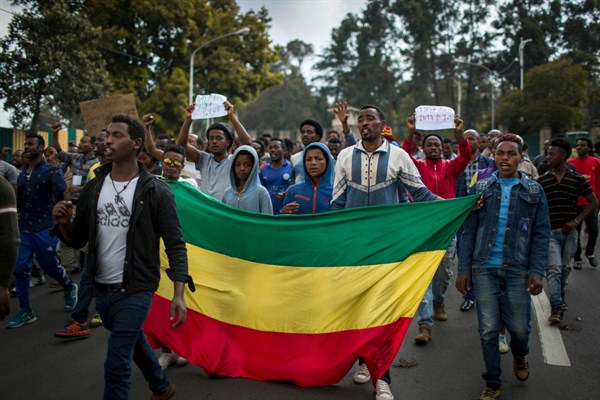Violence erupted outside the Ethiopian capital of Addis Ababa last month, leaving at least 23 dead as ethnic Oromo nationalists targeted members of minority groups. The perpetrators were reportedly emboldened by the return of the previously exiled Oromo Liberation Front, after it was granted amnesty by Prime Minister Abiy Ahmed. The clashes are a setback to Abiy’s new administration, as he charts a conciliatory path in the ethnically divided country. In an interview with WPR, Terrence Lyons, a professor of conflict resolution at George Mason University, discusses last month’s violence and the prospects for Abiy’s reform efforts.
World Politics Review: What are the proximate and long-term historical factors that led to last month’s ethnic violence?
Terrence Lyons: Since Abiy’s election in April, Ethiopia has undergone a “shock therapy” of wide-ranging and ambitious reforms. These have included the release of political prisoners, a peace deal with neighboring Eritrea, the removal of key members of the old security service leadership, and promises to privatize key state enterprises. Abiy and other key reformers are from the Oromo wing of the ruling coalition, the first time in Ethiopia’s modern history that it has been led by a member of the Oromo, Ethiopia’s largest ethnic group. Still, while “Abiymania” has generated extraordinary hopes among many, institutional change has been slow.

